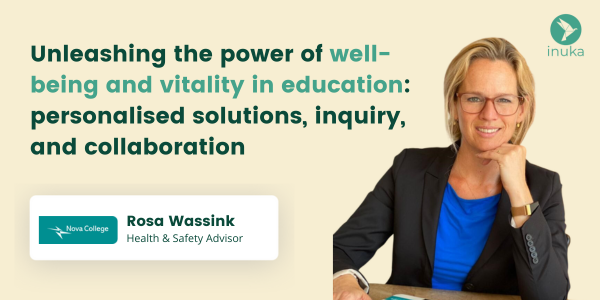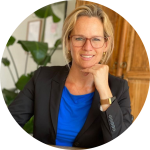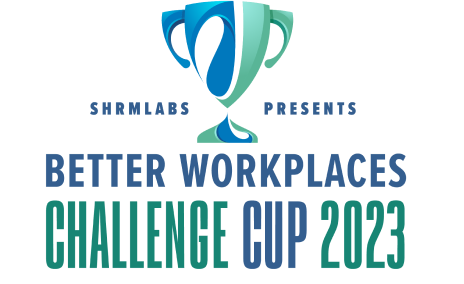Unleashing the power of well-being and vitality in education: personalised solutions, inquiry, and collaboration

Rosa Wassink, Health & Safety Advisor of Nova College and Vitality Manager of the Year 2022, shares her perspective on success factors for strategic employee vitality.
Rosa, congratulations on being named Vitality Manager of the Year. It's truly an honor. Can you introduce yourself, Nova College, and your role there?
Thanks so much! I’m thrilled to have received this recognition for the various initiatives aimed at building a vital organization for both employees and students. I come from a practical background as an occupational therapist. My interest in vitality was sparked during my Master’s degree in Health Science, specialising in Work & Organisation Science. I began my HR advisory career at Rabobank International, where I gained exposure to the broad spectrum of HR. Later, I joined a large occupational health and safety service as an expert in that field. However, I often felt that I needed more time and resources to truly address the root causes and provide sustainable advice.
Currently, I’ve been working at Nova College for 10 years. It’s an institution for secondary vocational education (MBO), where over 1,100 employees motivate approximately 12,000 students daily to learn various professions in sectors such as hairdressing, laboratories, catering, and mechanics. Nova College is a multi-layered, dynamic organisation with 7 directors and 14 branches. I am excited to work in this sector since vocational education forms the foundation of our society, constantly evolving with the emergence of new professions.

Fascinating journey, Rosa. Now, let's talk about the trends you see in well-being and vitality at the moment.
In my opinion, the most significant trend revolves around learning to deal with mental pressure, considering the consequences of today’s society and the social problems it creates. Particularly in my field of work, we observe high levels of overstimulation among both teachers and students in this rapidly changing world.
The COVID-19 pandemic has acted as a catalyst, causing much of our lives to shift online and leading to a disconnection from society and nature. This desocialization has made students more outspoken and sometimes even bolder, which poses challenges for teachers who have to navigate these dynamics. Additionally, teachers are already burdened with heavy workloads and there are general labor market shortages. So, learning to manage mental pressure is crucial for well-being.

What do you find to be the biggest challenge in addressing mental well-being?
The biggest challenge lies in creating a structure where employees can consistently work on their vitality. Teachers primarily channel their energy toward their students. Therefore, to truly engage teachers in our vitality initiatives, we’ve found that it’s most effective to involve students in the process. By harnessing the energy present in our organisation, we have a better chance of success.
Our aim is to build a vital organisation for both employees and students, recognising that teachers play an key role in shaping student experiences. It’s important to emphasise that this effort is not solely about individuals but also about the broader context of Nova College. It requires aligning our business strategy with a cultural change that encourages reflection, self-knowledge, and insight. I consider this challenge an incredible opportunity to make a meaningful impact on society through my work.

That's a powerful approach. Where do you draw inspiration for driving this cultural change?
My sources of inspiration are diverse, ranging from online platforms to the valuable network I gained access to after winning the Award. The network of vitality managers from a variety of sectors and industries, such as DAF, Philips, Achmea, and Jumbo, has been invaluable. I’m also constantly learning from others’ experiences and adapting strategies to suit our unique context.
While vitality programs in the secondary education sector often remain superficial, our program, Nova Fit, is embedded in our business strategy and emphasises measurable returns. Clarity of purpose is crucial since each phase requires a different approach and objectives. So, it’s important to consider which phase we’re in and therefore what to prioritise.

They sound like great sources of inspiration. We’d love an insight to the secret source of your vitality strategy. What is your opinion of key success factors?
In my experience, three central themes are vital prerequisites to success: safety, connection, and trust. Safety encompasses both psychological and physical aspects, ensuring that employees feel secure in their roles and building a network within the organisation. Creating connections involves not only establishing the right relationships, but also finding common ground to truly understand one another. It’s crucial to engage with colleagues wherever they’re at, to gain deeper insights.
Once these foundational elements are in place, trust becomes a critical success factor. Trusting others to find their own solutions and empowering them to take ownership is key. Asking questions like “What do you need for the first step?” or “How would you approach this?” helps facilitate growth. Patience is also important—this mission requires taking others along on the journey, and effective internal PR is essential.

Those success factors sound really valuable. Could you share an intervention or initiative that you are proud of?
Certainly! One of the interventions that I’m proud of is our “workload plan,” which played a significant role in my nomination. It’s a program that employs a tool based on the Job Demands Resource model (Schaufeli) to address workload by identifying stressors and energy sources. The tool uses an analogy of a battery, where employees identify what charges them and what drains them. We implement this tool in a team setting because, in our experience, behavioral change is often more effective when done collectively. By working together, teams identify bottlenecks and collaboratively search for solutions and improvements, becoming self-regulating units.
This tool has brought us tremendous results, although the journey wasn’t without challenges. Initially, our employee satisfaction survey revealed that 50% of employees experienced high workload levels. However, not everyone was motivated to take action. Some were stuck in their daily routines or believed that the causes were beyond their control. Over time, we managed to engage more teams by clarifying that our approach included exploring both stressors and energy sources.
The success stories gradually spread across our 14 branches, and now we are working with 20 teams. However, it’s important to note that this approach isn’t universally applicable to all teams. We offer tailored tools that align with the subcultures of different sectors, such as hairdressing, technical work, or social work.

So interesting that you have had success practically applying leading theory and tools from the research field. Lastly, how did you succeed in putting vitality on the agenda?
It was a lengthy bottom-up process. Initially, vitality wasn’t seen as strategically important within our organisation. It was perceived more as something individuals had to manage on their own. Getting it on the board’s agenda wasn’t easy. Proving the direct impact of vitality initiatives on organisational outcomes is challenging. Additionally, there were concerns about how to rally the organisation and avoid operating in silos. However, by gradually introducing measurable results and engaging in strategic sessions with management, we have made significant progress. I’ve learned that it’s important not to rush the process and to find the right timing and approach. However, the effort is undoubtedly rewarded in the end.

Thank you, Rosa, for sharing your insights and experiences as the Vitality Manager of the Year. Your dedication to building a vital environment for employees and students is truly commendable. Keep up the fantastic work, and we wish you continued success on your journey
Thank you! It was a pleasure sharing my experiences, and I appreciate the opportunity to contribute to the conversation on vitality. Together, we can make a meaningful impact on society.

Did you like this interview?
Find more interviews with business leaders of various top companies via the button below. Would you like to receive the next interviews in your inbox? You can register below.
Powered by Inuka Coaching, a #BCorp and value-driven organisation. With our roots in research, we lead on evidence-based, digital and data-driven solutions that achieve measurable impact in employee vitality and resilience.
As part of our mission ‘Everyone resilient’, we strive to bring valuable content to advance the strategic thinking in employee well-being and facilitate a vibrant and growing peer network of leaders, because we all learn faster and achieve more together! Join our peer network of leaders focused on Well-being, register here
Find this post interesting? Share it with your connections!


